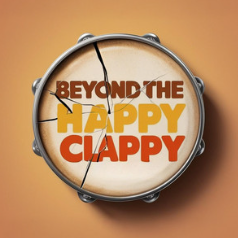
Rob's message for February

Recently I have been spending a lot of time listening to a podcast called Beyond the Happy Clappy. If you don’t know the phrase “happy clappy” you are in good company, because just before our wedding one of Cathryn’s extended family asked us if the service was going to be a bit “happy slappy!” it’s a slightly mocking term for churches which are characterised by more modern music with a band, and the expectation that the Holy Spirit will be working noticeably as people gather. It’s the sort of place where I have spent a lot of my Christian life, and where I feel at home, so I don’t tend to say it myself.
The podcast has tried to look back into the history of the happiness and clapping in this country, and especially how it has become so commonplace in the Church of England. At the same time, it is looking at some of the absolutely remarkable things that happened as churches began to embrace this from about 1960 onwards, and wondering about if and when and how we might see them happening again with that same sort of intensity.
It's easy to get nostalgic, especially in these villages where a lot of ministry of that kind, and a lot of remarkable things, were happening in the 80s and 90s. There’s a risk that you feel, or communicate, that that was the best of times, and nothing half as good has happened since. But it’s also easy to be cynical, and downplay the value of what God was doing then, and the lasting fruit it has had in people’s lives.
I don’t want to be either of those things. I want to be hungry, and curious. I do that because for myself, I haven’t really seen it: I was in church in the 80s and 90s, but by the time I really heard of the Holy Spirit those heady days weren’t quite here any more. But I also do it, because I just wonder from things I am hearing on this podcast, and right across the country, if something like that isn’t beginning to bubble up again.
Lots of the language I am hearing used as people try to discern what God is saying is to do with old wells being opened up, and new ones being dug. It’s being connected with an ancient story in the bible, where Isaac goes back to his father Abraham’s wells and does just that; he opens up the old ones, and digs new ones.
In these times of great global uncertainty it might seem odd for me to suggest that the future of our church, and maybe of our nation, is found in a little story tucked deep within the Old Testament. But what if it is? What if we all believed that God could reopen those spiritual wells I have only heard about, and dig new ones in our generation? What if – to quote a very happy-clappy song – we all believed that we would see him do it again?
Back to top of page

 Rob's message for February
Rob's message for February Rob's message for January
Rob's message for January